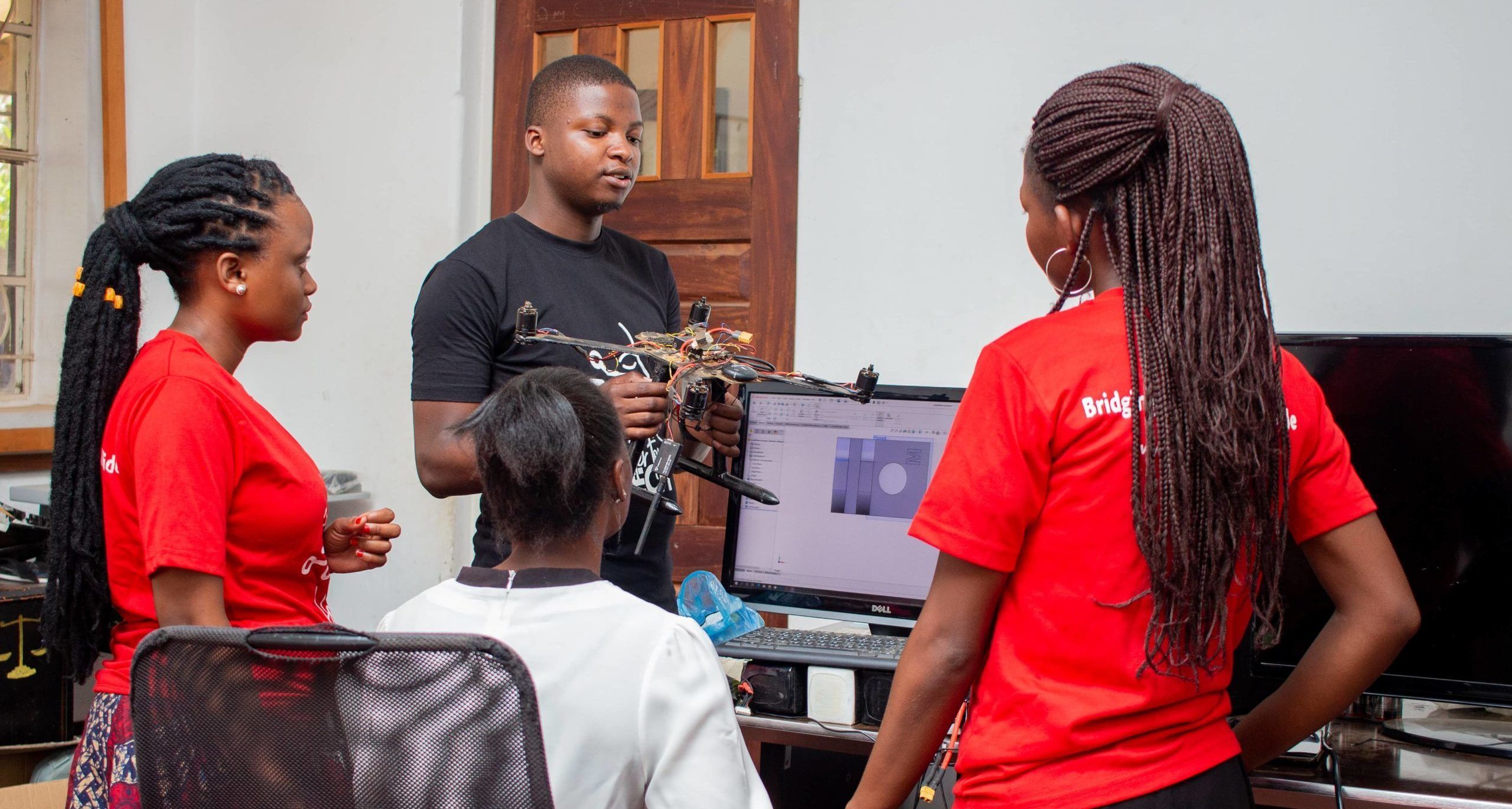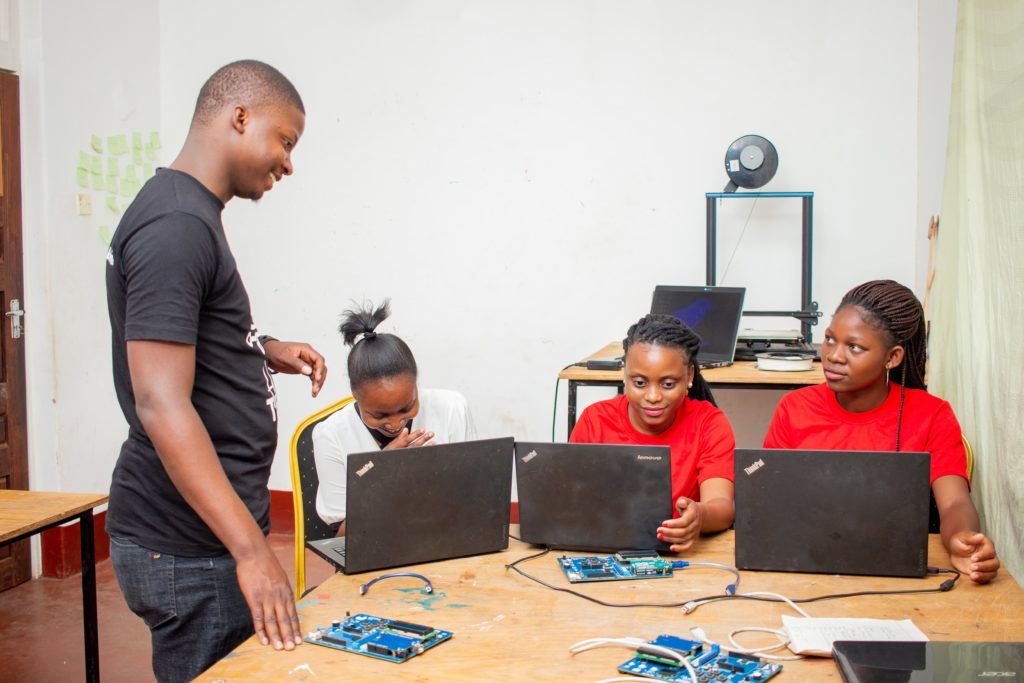
Bridging the digital gender divide in Malawi
By ITU News
We caught up with Generation Connect Youth Envoy Horace Chipembere to learn more about bridging the digital gender divide. Horace runs HerforTech, an initiative that promotes digital skills development to empower women and girls in Malawi.
In a recent LinkedIn post, you describe helping girls overcome “fears of technology.” Were you ever afraid of technology in your youth?
I think there are always fears associated with technology. During my school years, I found most things I was learning to be complex, confusing, and unfamiliar. For example, during my first programming lesson, I was intimidated by the idea of writing code or an entire program from scratch.
How did you overcome those fears?
I challenged myself to say: “If others can do it, then I can too.”
I got extra lessons on the Internet, including through YouTube, and conquered my fear of programming.
I now enjoy coding because it allows me to solve problems and boosts my creativity. I also found role models and mentors who inspired me to take action and supported me to overcome my fears.
Why is being a Generation Connect Youth Envoy important to you?
Generation Connect has given me a platform to discuss opportunities and challenges related to digital technologies in the African context. My involvement with the International Telecommunication Union (ITU) as a Generation Connect Youth Envoy allows me to bring my talents, passion, and energy to engage and collaborate with youth globally.
What kind of example would you like to set for other youth envoys?
I would like other youth envoys to lead with integrity and be positive role models in their engagements.
We have the power to create the change that we want to see in the world.
This can be achieved by working together to shape our future and inspire others.
When it comes to bridging the digital gender divide, how can girls overcome their fears of using technology?
The first step is to understand the reason for the fear. Reminding girls that they are strong, capable, and bigger than their fears is important. They can challenge themselves with an “I can” attitude, and by trying out different technologies. Thinking of the positive outcomes of technology can help, as well as finding women leaders in technology to be role models.

I would love girls to remember that it is okay to make mistakes when learning new technology and that there is always room to learn from those mistakes.
Can you share some examples of how digital skills are empowering girls and women in Malawi?
Malawi has a population of 19,647,681. According to the World Bank, 82 per cent are rural dwellers who rely on agriculture and small-scale entrepreneurship for their livelihoods. Girls face many challenges in Malawi, including limited access to education, early marriage, and sexual violence.
However, technology and digital skills are empowering girls and young women with key skills to succeed in life. For example, Victoria Kasoti, a Her4Tech mentee trained in digital skills, shared how new mobile and social media technologies have provided her with a platform to communicate, access information and connect with like-minded individuals from around the world.
Another Her4Tech member, Natasha Mahiye, told me that using digital tools gave her access to new learning opportunities and valuable career experience.
Victoria and Natasha are now pursuing degrees in computer systems and security at the Malawi University of Science and Technology. By building their skills and confidence, girls and young women like them are becoming agents of change in their communities.
What are the biggest hurdles you notice in empowering girls and women to use technology?
A primary challenge is that some girls and women think technology is a male-based domain. Another is thinking technology is too complicated, or not seeing its value. Some girls and women may be intimidated by technology because of inexperience or limited access to devices.
Sometimes, the media portrays girls and women in the IT industry as geeky or antisocial – stereotypes that can have a negative influence. Women are still underrepresented in the technology field. This means fewer role models for girls who are interested in science, tech, education, and math (STEM).
What’s next for you as a Youth Envoy focused on empowering girls and women?
I aim to help increase the number of young girls interested in pursuing technology careers.
My plans include introducing them to drone technologies, offering advice in school career guidance sessions, conducting digital bootcamps, and fostering relationships with those who share these goals.
What is your dream job?
I would like to serve as a Minister of Information Technology. I would have the power to make positive decisions that my generation needs, including in areas like the gender digital divide, cybersecurity, Internet governance, education, and access to information and communication technology (ICT) tools.
I would want to influence people to take charge and use resources at their disposal to create a better future for the coming generation.
This interview has been edited for length.
Image credit: Horace Chipembere
ITU’s Generation Connect initiative has established six regional youth groups, with Youth Envoys from over 100 mostly developing countries.
These groups aim to provide a unique and participatory platform for young people to contribute to ITU’s work, discuss opportunities and challenges related to digital technologies, and more.
Learn more about Generation Connect.
